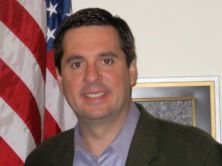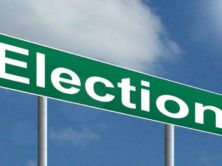Kenneth Best debated whether Liberian media should endorse political candidates. (Credit: Freemedia.at, Press Union Liberia)
In Liberia, there’s a debate going on over whether it’s OK for media outlets to make endorsements, Liberian newspaper The Analyst reported. U.S. newspapers conventionally give endorsements on their editorial pages, as the Analyst mentioned by comparison.
According to the Analyst, the debate ” was spontaneously sparked up” during a workshop on effective reporting during the 2011 elections. The workshop was hosted by the Liberia Media Center in Monrovia.
The two countering positions were argued by Daily Observer Managing Editor Kenneth Y. Best and Press Union of Liberia’s president Peter Quaqua.
The debate “has now become crucial to the national narratives about the roles of free, fair, and transparent elections; informed, independent voters; and the press,” according to the Analyst.
Best reportedly argued that by endorsing candidates, the media would be helping create an “informed voter majority.”
Best said he didn’t think that endorsing would go against “journalism ethics of neutrality and disinterest in political outcomes.” Instead, he claimed that it’s “part of the sworn responsibilities of the media to inform and educate the general public on events transpiring within the country.”
“I don’t have problem with the media endorsing a particular candidate during the elections, once it is done in line with fairness and the facts are also presented. It is not a violation at all. In America and other places around the world, the media do carry out this function,” Best is quoted as saying.
According to the Analyst, the Daily Observer’s 2005 endorsement of a candidate was the only one that year.
Quaqua on the other hand took the stance that endorsing candidates goes against “the true responsibility of the Liberian media” and claimed that endorsing would create “total mess and chaos” in the “electoral process.”
He also suggested that candidates may try to buy endorsements, which would also lead to “the permanent tainting of the image of the media.”
Quaqua stated:
“I agree that the idea propounded by Mr. Best is a good one, but I think we should leave that with the Americans and other people for now. If the media starts to endorse candidates now, politicians may infuse money into the process, and there will be total chaos around here. We don’t want to wake up one morning and hear newspapers endorsing candidates all around us. This will not be good for us because that will certainly confuse the electorates.”
The Analyst’s U.S.-residing editorial consultant, B. Ignatius George, called the decision to endorse candidates “a serious dilemma.”
“Leave the situation as is and still have money, ethnicity, and relationship determine the president for the next six years. Or allow the media to endorse candidates and have them risk their integrity or put them on collision course with winners who they did not endorse. But the issue is worth the whiles of the nation and media practitioners. Otherwise, it would be like a dog chasing its own tail. No ending.”
iMediaEthics has written previously about the role of the U.S. government in sending American journalists to train Liberian journalists. In October, the U.S. State Department sent University of North Texas interim dean Mitchell Land to train journalists before the 2011 elections. And, in November, the U.S. ambassador to Liberia, Linda Thomas Greenfield announced an $11 million USAID program for a civil and media program in Liberia.
iMediaEthics is writing to Mitchell Land to ask if his October 2010 workshop covered the topic of endorsing candidates.






Comments Terms and Conditions